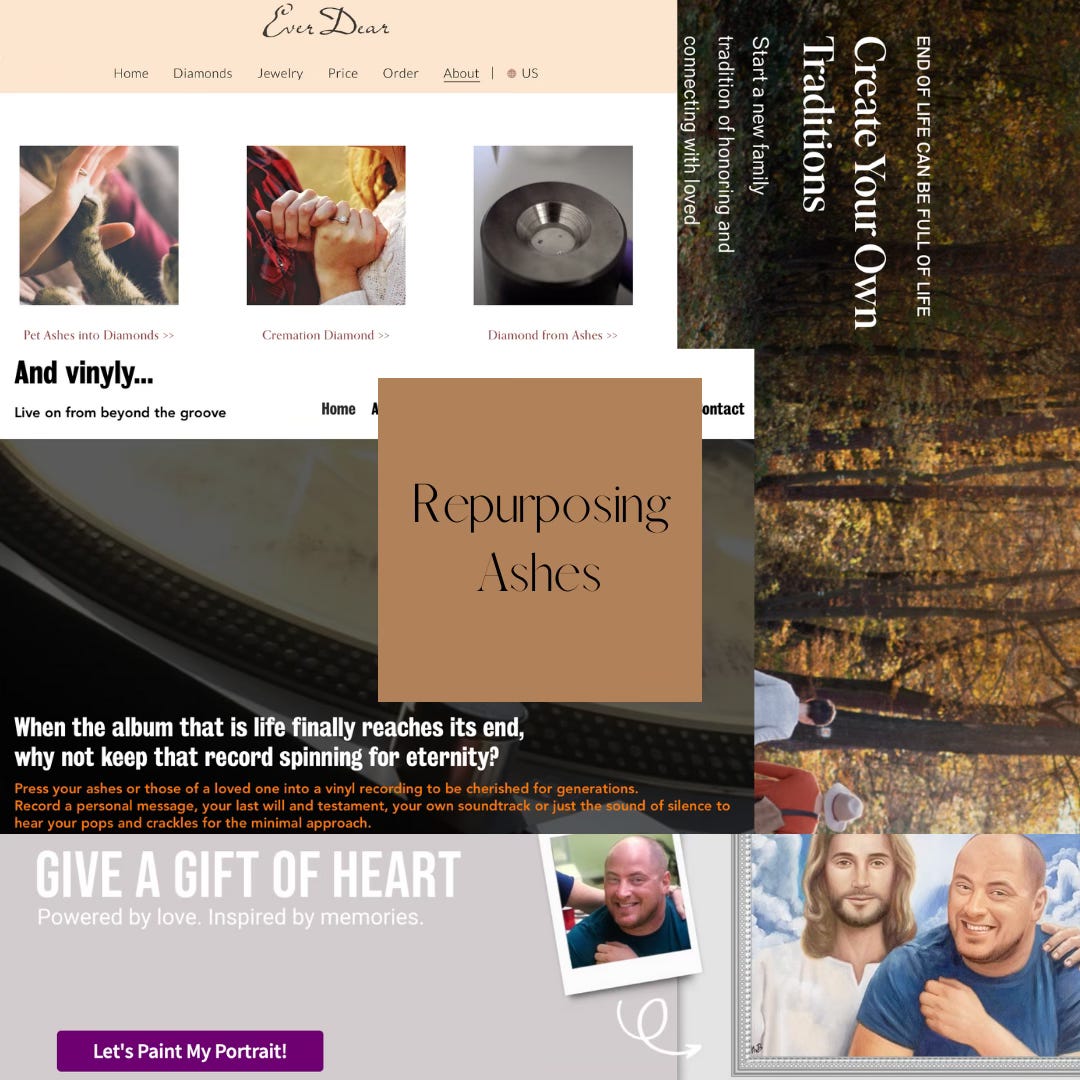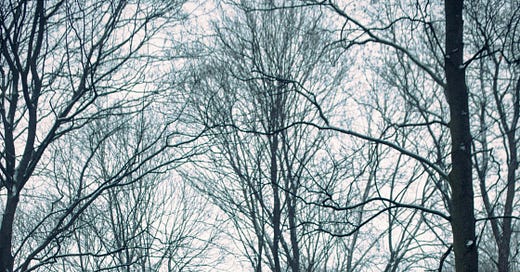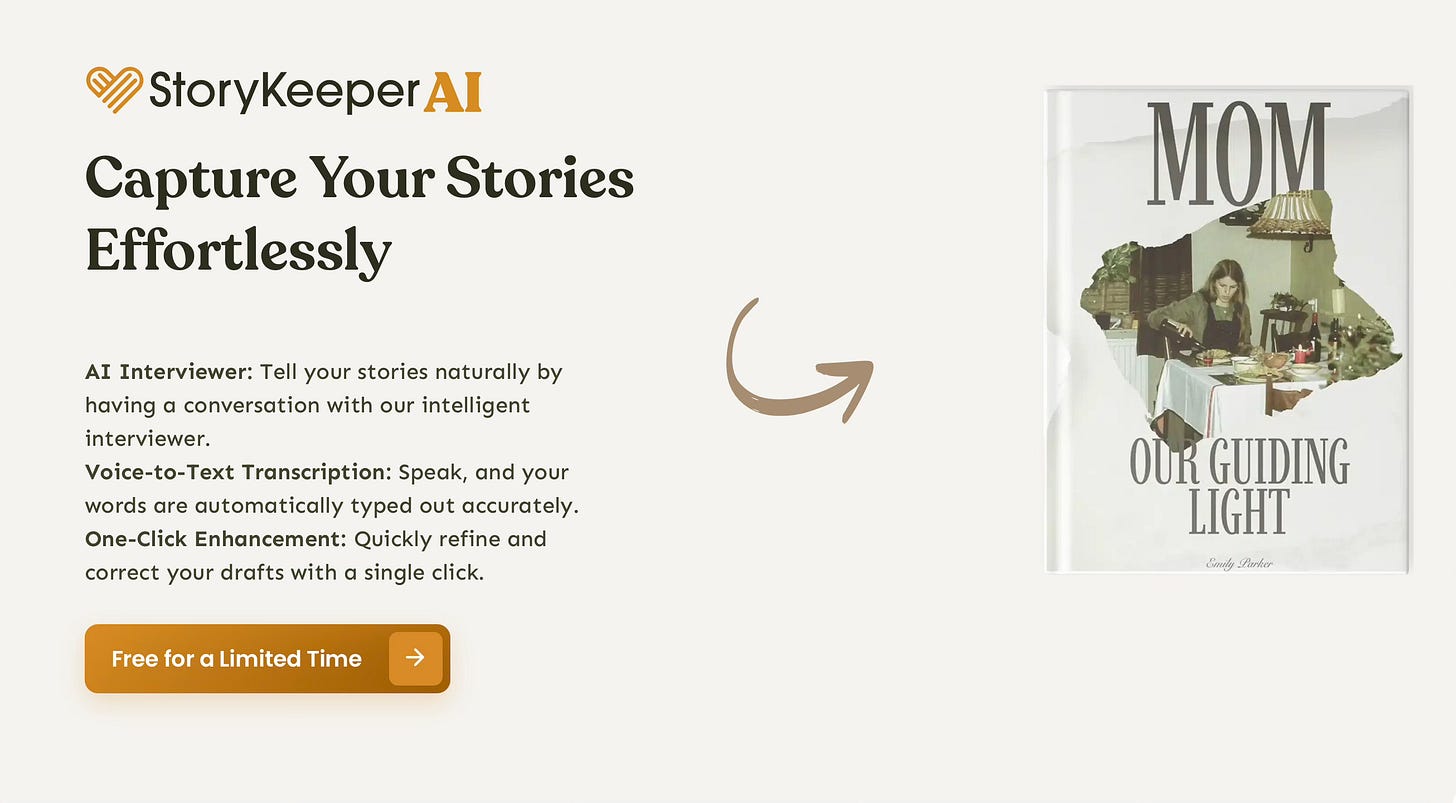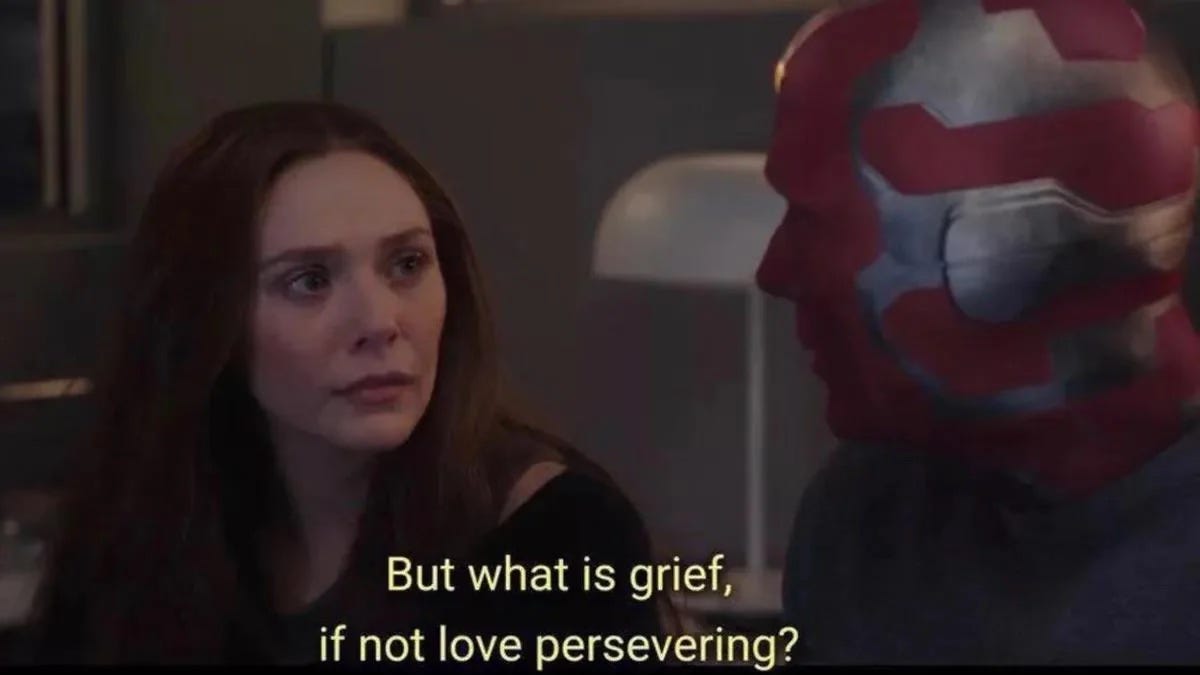The footnotes of the piece can be checked for further clarity but ahead of your reading just know the capitalization of the “D” in Death is an intentional choice and hopefully the logic is made apparent by the end of the essay. Grief is something I’m intimately acquainted with and find great comfort in, it was cathartic finding a way to synthesize why as well as make an argument for more of it in this piece. It’s one I sincerely hope you enjoy.
“Who did the body?”
is the first question they’ll ask after (or if they’re particularly uncouth), during my funeral. Such a thought wouldn’t be special. It’s present at every funeral and repass I’ve ever attended. Though it seems unique to Blackness, it will not be unique to my life. This question’s been asked ad nauseam and still, the answer rarely satisfies. The circumstances of death may not be predictable but the proceeding rites will be. A hug, somehow flaccid yet overwhelmingly stiff. Measured condolences that spill from lips that only mean it some of the time, and finally, the cursory glance into the casket, no more than 5 seconds required to assess the state of my death. Inevitably, things will be wrong: my face will be too pigmented or caked up, the hair incongruent with my usual styles and the clothes too put together for me to ever wear in earnest alive.
In a mess of wood and satin, sickly sweet fragrances and a mist of antiseptic, the body will be displayed with the grace of a holiday roast, made for critical consumption. My choice to be cremated is an inspired one.
The funeral has always intrigued me—this performance of recognizing an immutable facet of life, one’s eventual death, felt needlessly complicated and often times, foreboding; an aneurysm or stroke or rogue bus mowing me down capping off my final days was never inconceivable. For every moment I’m grateful for being alive, I’m reminded this could be my last thought. I find myself pondering whether it’s this knowledge that makes me grateful in the first place. The answer to that question remains unknown.
The human relationship to death is further complicated by our incessant need to control our outcomes, of the billions of living species on planet Earth, we’ve been historically discontent with letting that existence occur unfettered. Understanding that mars my own relationship with the process. The few times I’ve thought I was about to die, I felt a crippling fear wash over me, not about my pending death but rather, what would be done to my body, how the capacity to cope by my loved ones will ultimately decide how faithful they are to my wishes. Control, functioning like a straitjacket on both ends; death will come for me, whether I had plans to go or not and when I do, the remnants of my existence will be left solely to the living. There’s something painful about it, desperately seeking dominion over the only thing we cannot.
We1 have bastardized the natural order, looking for any loopholes available to circumvent the finality of loss. I’ve observed the lengths folks will go to delay the permanence of death; though it can’t be cheated literally, we will die trying.
There’s entire industries around it.

On its face, it seems like another consequences of Capitalism and the contemporary world’s (namely the Global North) obsession with consumption, the marriage between who you are and what you own. That would be a fair interpretation but as I age and greet death continuously in various ways, I’ve adopted a more sympathetic glance at the activity. Through extending the “life” of our dead, we allow ourselves to be more intimately involved in the process at large. Capital D “Death”2 is outside of our purview in many ways, though death can (and often is) manufactured, it doesn’t require a hand to occur. It’s inevitable and that inevitability in cultures sitting atop years of hubris that say if you can’t make it happen, it’s because you didn’t want it enough, have really set us up for these oddities.
Under the colonial shadow cast upon society, it’s unfathomable to think we would end up any other way. We’ve been handed a script that says what is natural, is inherently conquerable. The root of such sentiments are the reason we even have atrocities to learn then unlearn then repeat then reject in the first place. Flags are flown in outer space as we turn toward space exploration (read: colonization) because the globe isn’t big enough for our species ambitions and subsequently, our greatest fears.
We yearn to immortalize our dead and in turn, pry open their caskets and force their ascension from the grave. In attempts to delay what is natural and honestly, beautiful, we become artificial. It’s a pathetic and wholly understandable response. And as technology continues to anamorphize, the implications of our neuroses grow. It’s not enough to listen to your loved one pressed in a vinyl, no, they need to be suspended in the Milky Way. To a place they could never really die, and if they do, it’ll be well out of your view so they might as well be living.

If you’re being especially selfish, you could use AI to manufacture their memory book, accompanied by their biography, photos and quotes. It’ll burn through obscene amount of water and extend a woefully unethical technology’s capabilities but at least you were able to synthesize grandma’s life in an hour or less. Forgoing archiving the deceased yourself (a loving, important act of grief), for the convenience of a machine.
Ironically, technology though meant to increase our proximity to the dead, alienates us from Death. What do we call it, when we use the alien to cope with the human?
The greater tragedy perhaps is the tools we’ve built are as impermanent as we are. The records scratch and weather and someday, cannot be played. The file of your digital memory book will corrupt, your external hard drive will be rendered obsolete and thus, useless to you. The tree erected with your ashes will not persist forever but rather, age as we do, and return to the earth once more.
By refusing to confront the sum of Death’s nature, we replicate it. You’ll die one day, and objects meant to preserve you will succumb as well—we’ve architected our death in perpetuity.
“How do you want to die?”
Since childhood, I’ve been confronting these questions; my naturally stoic grieving process made me a desirable pew mate as the organ played and eyes drifted between the body, to the pastor, to the bereaved, back to the body. The choreography was instinctive, stunning in a haunting way. It’s proof of how equalizing Death is, how no man or belief system has found a way to cheat it, and if they have, it’s been kept under wraps. A sob reverbs under the pastor’s tempered tone and we all fight not to follow the sound of anguish, rather allowing it to travel across the room at its own speed, cocooning those who need it, wisping past the rest.
It’s that unmistakable keen native to mourning, a sound that tells you someone has died, if you were doubtful. The language that needs no translation. A certain agony unique to reconciling with mortality takes home in us all, at least once or twice. Words turned over and over again as we spend our mortal life coping with other’s deaths.
We even attempt to find its analogous counterparts in our language.
Le Petit Mort, the little death. How the French chose to assert the orgasm sits curiously in this space. The Little Death, much like the big one, favors us all; can indiscriminately alter the course of everything. Orgasms. Death. Steal us of our senses with no expectation of gratitude for it. A nosedive into the inevitable with mystery shrouding what will greet us after.
I’d imagine the French decided upon this because they too felt awfully mortal in the throes of pleasure. Wistfully hoped the orgasm was a mirror of something more daunting than itself. Orgasms are great, the combination of desire and awe and the sweet pains of being corporeal hold intrinsic relief and who wouldn’t want death to feel like that? Airy and bright with little bites of electricity in between. Sometimes an orgasm will rip through me so violently that I’m able to recall we really are just blocks of atoms rubbing furiously together— simple creatures taking delight in that liminal space.
I suppose there’s comfort built within the comparison as well. If we’ve kissed Le Petit Mort, then maybe Le Grande Mort can’t be so bad.
For a long time on this planet, we democratized these contradictions and expected that all could hold them appropriately. We insisted on our right to grieve endlessly and stayed close to the processes and rites required to honor our dead as well as confront them. The most immediate loved ones would be supported by the community, the wise and willing would prepare the body for transmutation, whether that be via pyre or water or soil. We’d lock arms and make earnest wishes aloud as we requested safe travels for souls. We sang and danced and cried, oh we cried, together, always together. The behavior was compulsory, because it was an assertion of humanity.
Today, we’re bombarded with death. It’s broadcast widely through our devices (the radio, the news, social media etc.) yet we’ve never been so far removed from it. The older I get, the more people I meet, it’s becoming less commonplace for folks to have ever interacted with the dead in earnest. Thousands of years of us knowing Death intimately, only for a physical relationship with the dead to become a minoritized experience. Outside of my community, I don’t meet many people who’ve seen dead bodies in real life, much less touched them, hugged tightening and cold skin for the last time. We’re a dying breed (pun, unintended).
Technology, automation, their marriage has not only produced more death, but tucked it away. Subverted long held precedent to sanitize our relationship to aging, to our inevitable passing. Instead of congratulating our elders for approaching the end of a long journey, we admonish them for discussing it; it was decided at some point that interacting with Death in its totality was more gauche then creating as much distance from it as you can.
Every facet of life is penetrated by anxiety about the natural failing us, prompting the gleeful rejection of its complements. This abandonment produced the circumstances required not just for mass death, but for the apathy attached to it.
This week I read Who Can You Kill? by Lolo, it’s a meditation on necropolitics3 essentially, the recent streak of vigilantism (be it the white domestic terror or class variety) front and center in its message. The question of who’s worthy of life or meant for dishonorable death only occurs in societies that require Death be dishonored at all. And I’d argue all death adopts a degree of dishonorability the second it becomes the purview or work of a selective few. When we all touched Death, its sanctity was easier to maintain—since its outsourcing, its become the playground of the cruel and unjust as opposed to the commonfolk, as it was intended to be. As we’d done for most of human history.
We produce the dead, then ignore death, only to be troubled by the lapse in memory this mechanism causes. We immortalize our dead in the language, in the music, in the tech, in fucking space because memory has been made deficient. The hugs and phone conversations and weirdly illuminating arguments meant nothing if there ceased to be tangible proof of our shared existence. We’re suffering from a memory loss prescribed by the very tools we use to treat it. The relief of knowing something, not someone (an important distinction, I assure you) is cataloguing our legacies, make us careless about their preservation within us. The perfect circumstances for this mortality atrophy that extends the impact of grief due to its refusal to engage with its origins.
Grief is power because it’s crafted by love’s memory. It reminds me of Sethe in Beloved, suspended in a mourning that served to remind her she’d lost something precious, that grief ultimately, is a gift.
“Something that is loved is never lost.”
Our capacity to love and thus honor each other, is cauterized when we attempt to circumvent why loving matters. If grief is an extension of love, then love is a precursor to death—proof that what makes life precious, worth loving even, is its impermanence, and all we are capable of doing before Death consumes us. The reason it’s easy to make death the business of the inhuman (whether it be a drone strike, an automatic denial via software or algorithm trained to view certain bodies as valuable exclusively in death) is because we’ve abandoned humanity, we’ve abandoned loving.
And this dereliction is costly, not just on the planet but on our souls. Life cannot be lived or experienced to its fullest extent in a world intent on disseminating it from the light that makes the path visible. If we’re to concede that we’re above Death and its gravity, then we’re stating we’re above life, in all its glory and awkwardness and wonder. Turning our back to the funeral pyre doesn’t stop the flames but rather ensure if they spread too far and wide, we’ll be unaware and consumed in its blaze. I want us to become reacquainted with Death so that we can decrease its frequency. So the funerals we go to are not the descendants of poverty and austerity and terror but rather the natural (read: unmanufactured) and sensible end to a robust story and life.
Despite our best efforts, the preservation of people, memory itself, didn’t come with cogent instructions. Much like crawling and crying and blinking we simply do the thing now and find out what it was later—vocabulary isn’t what affords us our humanity, being human does, and what it means to be human is a inquiry that seems to only be answered at the end of our lives.
When my grandfather died, my mother refused to leave his bedside. Though it’s been decades since, she has a perfect recall of that day, of the process she watched hospital staff take after he took his last breath before wheeling his body to the morgue. Whenever we discuss it, she marvels on how sensible it all is, how crystalizing it was to see that he didn’t need those things anymore. She was one of two family members who touched him postmortem. The finality of his death made unavoidable by that very action.
Before his funeral, my uncle shaved Pappy (my grandfather), one last time. He said it was his way of giving back to his father, taking a skill he’d learned from him and using it to help him appear as he’d have liked. It’s the most pronounced example of the power of working with Death, with grief, not against it. A give and take that wasn’t passed on with the intent on this outcome but made sweeter because of it. The love of his third son was apparent on the day of his funeral, it could not be escaped and that may be the best outcome we could ever hope for, and the only one worth aspiring to.
We used in the communal sense; not always about you but us, the collective eg. We the people
The author, me, has decided to make a distinction between Death: the macro and death: the micro. It’s best understood within the accompanying context but if it was unclear, Death is referring to its status as a literal and immutable force all will succumb to and death, the abstract, the orchestrated, the artificial and thus commodified.
Necropolitics is a sociopolitical theory of the use of social and political power to dictate how some people may live and how some must die.







Worked on a calendar/zine about grief this November. I wrote about how to make space for grief by making the present bigger, and as you say working with it. This was beautiful. Thank you
This was poetic and interesting; I'm always appreciative of your opinions and point of view. Death is one of those Sure Things that affects Us all and it's oddly comforting to hear how others relate to and think of it.